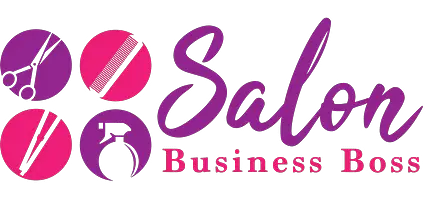Choosing to become an independent contractor can be scary for some, but choosing to rent a booth in an already established business can make that transition easier. What do you have to do to rent a chair in a salon?
How to rent a chair in a salon:
- Meet with a business owner that is currently renting out booths.
- Understand the entire rental agreement before you sign or agree to anything.
- Know the difference between a lease agreement and a rental contract.
- Get tax information from the salon owner.
- Secure the proper health and liability insurance.
- Know what renters can’t do.
- Sign a legally binding agreement that is beneficial for both sides.
- Display your licenses in your booth.
- Communicate with other booth renters and the salon owner.
What do you need to make sure is in an agreement before you sign it? What amenities should a business owner provide? What do you need to have before you even sit a client down in your booth? Read on to find out more.
1. Meet with a business owner that is currently renting out booths.
You are looking for a business that provides a decent work culture that cares for its renters, along with giving you enough independence to create your small business. You will want a business owner who is upfront with the following information, like rules, regulations, and taxes—if they aren’t, consider looking for a booth elsewhere.
You should also look for a salon owner who is upfront about all information about the salon, like if they have the right insurance and the building is up to code. They should also communicate with you—if you sign a lease—about any maintenance to the building.
2. Understand the entire rental agreement before you sign or agree to anything

For a booth rental in a salon, you are simply entering into an agreement with the salon owner. It is like you are renting an apartment—you are responsible for paying for anything that you need and they are simply providing you with a place that is regularly kept up. This means they are not you boss—simply your renter. All other business work must be done by you.
Look into any national, state, or local laws that may govern salons in your area. Not all states will allow you to rent a booth—like Colorado, Michigan, New York, New Jersey, Virginia, and Pennsylvania. If you are living in that state and are considering a booth rental with a business, it could be considered illegal.
3. Know the difference between a lease agreement and a rental contract.
These are not mutually exclusive and can sometimes mean two separate things—meaning you can be required to sign both.
A written lease agreement is where you define that you are an independent employee. This information is sent to the Internal Revenue Service for tax purposes. In this agreement, the salon owner you are working with needs to outline all the information you are agreeing to—the rent or lease rate, the length of time the contract is good for, and how either party can cancel. It also shares how much you are paying for the booth, along with how and when to pay for the booth and what happens if you do not pay on time.
The rental contract, on the other hand, details more about the salon, including what they will provide to you if you rent a booth, like amenities, utilities, products, etc. It also should explain what areas of the salon renters are allowed to use, and what services are provided by the business owner, like a receptionist to take calls and book any services. At the very least, a business owner should be providing you with towels. The rental contract also includes tax information and any additional salon information pertinent to the booth renter, and any expectations they have for you as you represent both yourself and their business—like what hours the salon is open, any non-compete clauses, rules, regulations, etc.
What are your responsibilities to booth renters?
4. Get tax information from the salon owner.
Before you even sign or concurrently with signing your agreements, make sure you get the tax information you need from the salon owner. You will be an independent contractor, which means you are responsible for paying your taxes, not the business owner. If you are making over $600 a year in your business, you will be receiving a 1099, which must be returned to the Internal Revenue Service to complete your taxes.
5. Secure the proper health and liability insurance.
Because you are an independent contractor, you will be responsible for your own health and liability insurance, not the business. The business owner should remind you of this, but making sure you have it before you sign an agreement can make sure that the process goes smoothly.
6.Know what renters can’t do.

Before you sign a contract, make sure you look for these red flags—while a business owner can request for you to do your work within certain hours, they cannot limit your schedule. They also cannot make you charge your clients for other services provided at the salon, nor can they force you to sell certain products or tell you how much you should be charging for your services.
They also do not have the authority to force you to join with promotions that the salon is putting on, nor can they force you to use their salon name and branding in your marketing. They also do not have to provide for you a key to the business.
7. Sign a legally binding agreement that is beneficial for both sides.
To even start renting a booth, you need to have agreed to and signed a legally binding document. Not only is it important to keep you both accountable, but it is required for the Internal Revenue Service—it explains that you are an independent contractor and the business does not have to file any taxes for you.
8. Display your licenses in your booth.
Once you sign the agreement, make sure your licenses are displayed prominently. Not only is this helpful for your clients to know that you are fully certified, but your salon may require it—legally, you have to make sure those are displayed.
9. Communicate with other booth renters and the salon owner.
The best way to lose customers is to have an unhappy work environment, so if you need anything, make sure you talk to your business owner about it. If there are supplies that you need that they should be providing, make it known that they need to.
Understanding what you are responsible for and what your chosen salon is responsible for is key before even considering signing a booth rental contract. Making sure you know the process before you go in can help make the entire decision and agreement run smoothly and get you started in your booth in no time.
Related Questions

Do hair stylists have to claim tips on taxes?
Yes, hair stylists must claim their tips. The IRS may check your claims, as they are starting to check over these taxes more diligently.
Can a salon owner fire a booth renter?
No, a salon owner cannot fire a booth renter, as they are not employees. Salon owners do have the authority to evict booth renters if necessary.
Looking to start your own Salon? Get the documents you need to get organized and funded here.
Please note: This blog post is for educational purposes only and does not constitute legal advice. Please consult a legal expert to address your specific needs.

About the author. Entrepreneur and Salon Business Fan.
Hi! I am Shawn and I am a happy individual who happens to be an entrepreneur. I have owned several types of businesses in my life from a coffee shop to an import and export business to an online review business plus a few more and now I create online salon business resources for those interested in starting new ventures. It’s demanding work but I love it. I do it for those passionate about their business and their goals. That’s why when I meet a salon business owner, I see myself. I know how hard the struggle is to retain clients, find good employees and keep the business growing all while trying to stay competitive.
That’s why I created Salon Business Boss: I want to help salon business owners like you build a thriving business that brings you endless joy and supports your ideal lifestyle.

